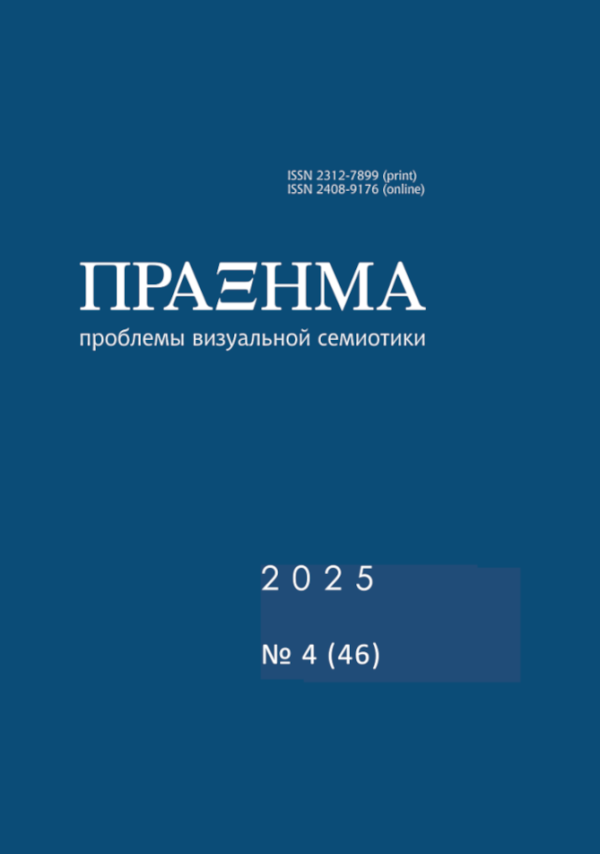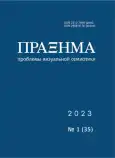ЦИФРОВАЯ БИОЭТИКА КАК ЭТИКА ЦИФРОВОГО ЗДРАВООХРАНЕНИЯ
- Авторы: Брызгалина Е.В.1
-
Учреждения:
- Московский государственный университет имени. М.В. Ломоносова
- Выпуск: № 1 (2023)
- Страницы: 9-29
- Раздел: СТАТЬИ
- URL: https://bakhtiniada.ru/2312-7899/article/view/269518
- DOI: https://doi.org/10.23951/2312-7899-2023-1-9-29
- ID: 269518
Цитировать
Полный текст
Аннотация
Об авторах
Елена Владимировна Брызгалина
Московский государственный университет имени. М.В. Ломоносова
Email: evbrz@yandex.ru
кандидат философских наук, доцент, заведующий кафедрой философии образования философского факультета Ленинские горы 1, Москва, Россия, 119991
Список литературы
- Беляева 2018 – Беляева Е. В. Цифровое общество и возможности его этического регулирования // Ведомости прикладной этики. 2018. № 52. С. 74–82.
- Гребенщикова, Тищенко 2020 – Гребенщикова Е. Г., Тищенко П. Д. Оцифрованное будущее медицины: вызовы для биоэтики // Философские науки. 2020. № 63 (2). С. 83–103.
- Мелик-Гайказян 2016 – Мелик-Гайказян И. В. Вавилонская башня – метафора о «семиотическом аттракторе» динамики Hi-Tech // Философия науки и техники. 2016. Т. 21, № 1. С. 92–103.
- Мелик-Гайказян 2018 – Мелик-Гайказян И. В. Диагностика моделей биоэтики // Вестник Томского государственного университета. Философия. Социология. Политология. 2018. № 45. С. 75–82.
- Юдин 2011 – Юдин Б. Г. Человек как объект технологических воздействий // Человек. 2011. № 3. С. 5–20.
- Allington et al. 2021 – Allington D., Duffy B., Wessely S., Dhavan N., Rubin J. Health-protective behaviour, social media usage and conspiracy belief during the COVID-19 public health emergency // Psychological medicine. 2021. Vol. 51 (10). P. 1763–1769.
- Bayram et al. 2020 – Bayram M., Springer S., Garvey C. K., Özdemir V. COVID-19 Digital Health Innovation Policy: A Portal to Alternative Futures in the Making // OMICS: A Journal of Integrative Biology. 2020. Vol. 24 (8). P. 460–469.
- Brall, Schröder-Bäck, Maeckelberghe 2019 – Brall C., Schröder-Bäck P., Maeckelberghe E. Ethical aspects of digital health from a justice point of view // European Journal of Public Health. 2019. Vol. 29, Suppl. 3. P. 18–22.
- Char, Abràmoff, Feudtner 2020 – Char D. S., Abràmoff M. D., Feudtner C. Identifying ethical considerations for machine learning healthcare applications // The American Journal of Bioethics. 2020. Vol. 20, № 11. P. 7–17.
- Costanza-Chock 2020 – Costanza-Chock S. Design Justice: Community-Led Practices to Build the Worlds We Need (Information Policy). Boston: The MIT Press, 2020.
- Floridi, Strait 2020 – Floridi L., Strait A. Ethical Foresight Analysis: What it is and Why it is needed? // Minds and Machines. 2020. Vol. 30. P. 77–97.
- Global Strategy on Digital Health 2020–2025 2019 – Global Strategy on Digital Health 2020–2025 // World Health Organization. 2019. URL: https://www.who.int/docs/default-source/documents (accessed: 04.04.2022).
- Gray, Gerlitz, Bounegru 2018 – Gray J., Gerlitz C., Bounegru L. Data infrastructure literacy// Big Data & Society. 2018. Vol. 5 (2). Art. 2053951718786316.
- Guston 2014 – Guston D. H. Understanding «anticipatory governance» // Social Studies of Science. 2014. Vol. 44 (2). P. 218–242.
- Hedgecoe 2004 – Hedgecoe A. M. Critical bioethics: beyond the social science critique of applied ethics // Bioethics. 2004. Vol. 18 (2). P. 120–143.
- Hedgecoe 2010 – Hedgecoe A. M. Bioethics and the reinforcement of socio-technical expectations //Social Studies of Science. 2010. Vol. 40 (2). P. 163–186.
- Hockenberry 2021 – Hockenberry M. Redirected entanglements in the digital supply chain // Cultural Studies. 2021. Vol. 35 (4-5). P. 641–462.
- Joerin et al. 2020 — Joerin A., Rauws M., Fulmer R., Black V. Ethical Artificial Intelligence for Digital Health Organizations // Cureus. 2020. Vol. 12 (3). e7202.
- Lucivero 2016 — Lucivero F. Ethical Assessments of Emerging Technologies. Cham: Springer, 2016.
- Marent, Henwood 2021 – Marent B., Henwood F. Digital health. New York: Routledge, 2021.
- Milosevic 2019 – Milosevic Z. Ethics in Digital Health: a deontic accountability framework // 2019 IEEE 23rd International Enterprise Distributed Object Computing Conference (EDOC). IEEE, 2019. P. 105–111.
- Mithani, Cooper, Boyd 2021 – Mithani Z., Cooper J., Boyd J. W. Race, Power, and COVID-19: A call for Advocacy within Bioethics // The American Journal of Bioethics. 2021. Vol. 21 (2). P. 11–18.
- Morley et al. 2020 – Morley J., Machado C. C., Burr C., Cowls J., Joshi I., Taddeo M., Floridi L. The ethics of AI in health care: A mapping review // Social Science & Medicine. 2020. Vol. 260. Art. 113172.
- Mulvenna et al. 2021 – Mulvenna M. D., Bond R., Delaney J., Dawoodbhoy F. M., Boger J., Potts C., Turkington R. Ethical Issues in Democratizing Digital Phenotypes and Machine Learning in the Next Generation of Digital Health Technologies // Philosophy & Technology. 2021. Vol. 34 (4). P. 1945–1960.
- Nebeker, Torous, Bartlett Ellis 2019 – Nebeker C., Torous J., Bartlett Ellis R. J. Building the case for actionable ethics in digital health research supported by artificial intelligence // BMC Medicine. 2019. Vol. 17 (137). P. 1–7.
- Prainsack 2020 – Prainsack B. The political economy of digital data: introduction to the special issue // Policy Studies.2020. Vol. 41 (5). P. 439–446.
- Ruotsalainen, Blobel 2020 – Ruotsalainen P., Blobel B. Health Information Systems in the Digital Health Ecosystem – Problems and Solutions for Ethics, Trust and Privacy // International Journal of Environmental Research and Public Health. 2020. Vol. 17 (9). Art. 3006.
- Schneider, Vayena, Blasimme 2021 – Schneider M., Vayena E., Blasimme A. Digital bioethics: introducing new methods for the study of bioethical issues // Journal of Medical Ethics. 2021. Art. 107387.
- Schillinger, Chittamuru, Ramírez 2020 – Schillinger D., Chittamuru D., Ramírez A. S. From “infodemics” to health promotion: A novel framework for the role of social media in public health // American Journal of Public Health. 2020. Vol. 110 (9). P. 1393–1396.
- Schmietow, Marckmann 2019 – Schmietow B., Marckmann G. Mobile health ethics and the expanding role of autonomy //Medicine, Health Care and Philosophy. 2019. Vol. 22 (4). P. 623–630.
- Selbst et al. 2019 – Selbst A. D., Boyd D., Friedler S. A., Venkatasubramanian S., Vertesi J. Fairness and abstraction in Sociotechnical Systems // Proceedings of the Conference on Fairness, Accountability, and Transparency. 2019. P. 59–68.
- Shaw, Donia 2021 – Shaw J., Donia J. The Sociotechnical Ethics of Digital Health: A Critique and Extension of Approaches from Bioethics // Front Digit Health. 2021. Art. 725088.
- Shaw et al. 2019 – Shaw J., Rudzicz F., Jamieson T., Goldfarb A. Artificial intelligence and the implementation challenge // The Journal of Medical Internet Research. 2019. Vol. 21 (7). e13659.
- Stützer, Welker, Egger 2018 – Stützer C. M., Welker M., Egger M. (eds.). Computational social science in the age of big data: concepts, methodologies, tools, and applications. Herbert von Halem Verlag, 2018.
- Winters et al. 2020 – Winters N., Venkatapuram S., Geniets A., Wynne-Bannister E. Prioritarian principles for digital health in low resource settings // Journal of Medical Ethics. 2020. V. 46 (4). P. С. 259–264.
- Yeung 2016 – Yeung K. ‘Hypernudge': big Data as a mode of regulation by design // Information, Communication & Society. 2016. Vol. 20 (1). P. 1–19.
Дополнительные файлы







